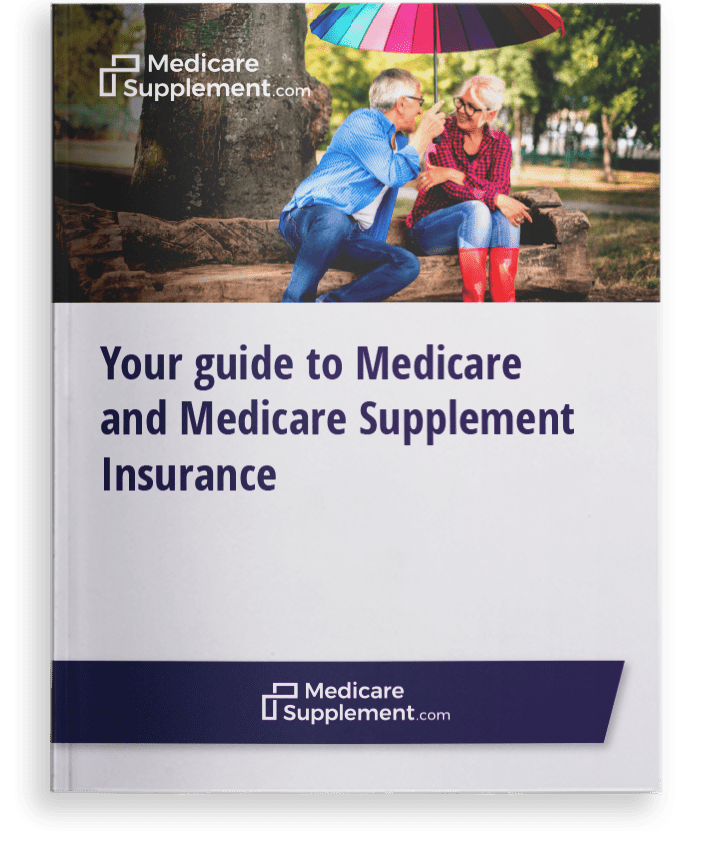Comparing plans
What Is a Point of Service (POS) Health Insurance Plan?
Point of Service (POS) health insurance plans are similar to HMO and PPO plans but may cover care at more doctors. Learn more about these plans to decide if one might be right for you.
POS plans are similar to many other types of health insurance plans but with their own benefit structure and of course their own acronym as well.
POS stands for “Point Of Service” and is a certain type of health insurance and Medicare Advantage (Medicare Part C) plan.
What Does POS Mean in Medicare?
POS means Point-Of-Service in Medicare just as it does in other types of health insurance.
A POS Medicare Advantage plan is a managed care policy that acts as a hybrid between an HMO and PPO Medicare Advantage plan.

Get a Free Medicare Guide!
Enter your email address and get a free guide to Medicare and Medicare Supplement Insurance, as well as important Medicare news and tips. We promise to never send you spam – just helpful content!
By clicking "Get your guide" you are agreeing to receive emails from MedicareSupplement.com.
How Does a POS Plan Work?
A POS Medicare Advantage plan works much like a Health Maintenance Organization (HMO) in that members will choose a primary care physician who will coordinate the patient’s care within the designated network of providers and issue referrals for specialist visits.
But like a Preferred Provider Organization (PPO), POS plan members have the freedom to venture outside the plan network for care and still receive some coverage in most cases. Coverage is typically greatest when care is administered by a network provider, however.
POS plans will often have two deductibles, one for in-network care and another for out-of-network care. POS plan members may have to file their own claims for care received out of network.
What Are the Benefits of a POS Health Plan?
The two big benefits of a POS Medicare Advantage plan are cost and flexibility.
- Because POS plans use a managed care system with a relatively small number of network providers, plan premiums are typically kept low with many POS Medicare Advantage plans having $0 premiums.
And while provider visits usually require copayments, these copayments are typically modest. - In terms of flexibility, POS members have the freedom to choose their own health care providers including ones that are not part of the plan’s network. POS members can receive coverage for care outside of the network and even far away from home.
POS plans offer the best of both worlds: Members may have their care managed and coordinated by their primary care doctor or seek out care on their own terms.
What’s the Difference Between a POS and PPO Plan?
Given their similar acronyms, POS and PPO plans are often confused or used interchangeably among Medicare beneficiaries. But it’s important to distinguish the difference between these plans when shopping for coverage.
The key differences between these types of plans are that POS plans require the use of a primary care physician while PPO plans generally do not.
POS plans require members to obtain a referral from their primary care physician in order to schedule a visit with a specialist while PPO plans do not. And POS plans typically cost less than PPO plans.
Who Can Enroll in a POS Medicare Advantage Plan?
Anyone who is eligible for Medicare Advantage and lives in an area serviced by a POS plan may enroll.
In order to be eligible for Medicare Advantage, you must be enrolled in Medicare Part A and Part B and be at least 65 years old in most cases.
When Can You Enroll in a POS Health Insurance Plan?
There are two key times to enroll in a POS Medicare Advantage plan.
The first is during your Initial Enrollment Period that you will be granted when you first become eligible for Medicare. This period begins three months before your 65th birthday and ends three months after.
The other optimal time to enroll is during the annual Fall Medicare Open Enrollment Period, which occurs from October 15 to December 7 each year.
Compare Medigap plans in your area.
Find a planOr call now to speak with a licensed insurance agent:

Get a Free Medicare Guide!
Enter your email address and get a free guide to Medicare and Medicare Supplement Insurance, as well as important Medicare news and tips. We promise to never send you spam – just helpful content!
By clicking "Get your guide" you are agreeing to receive emails from MedicareSupplement.com.

